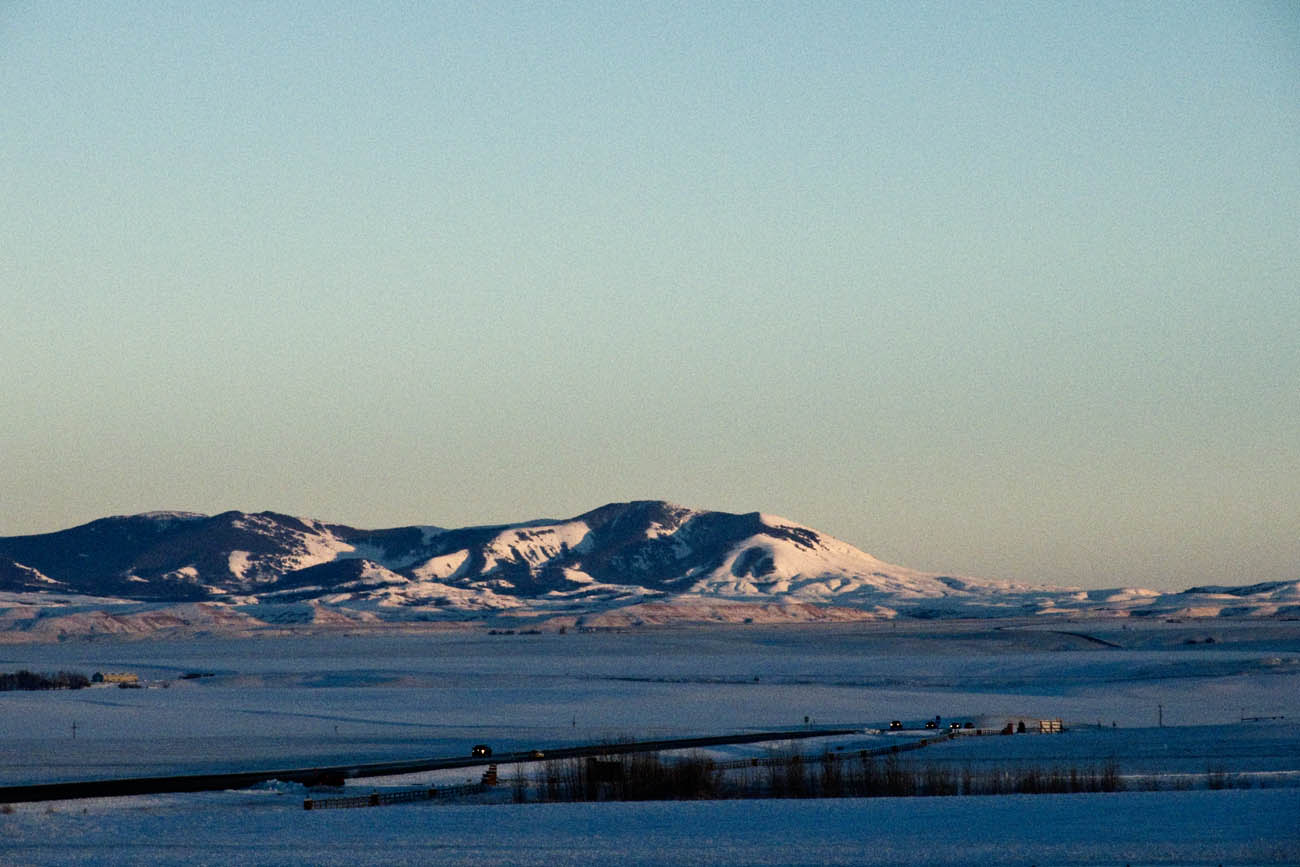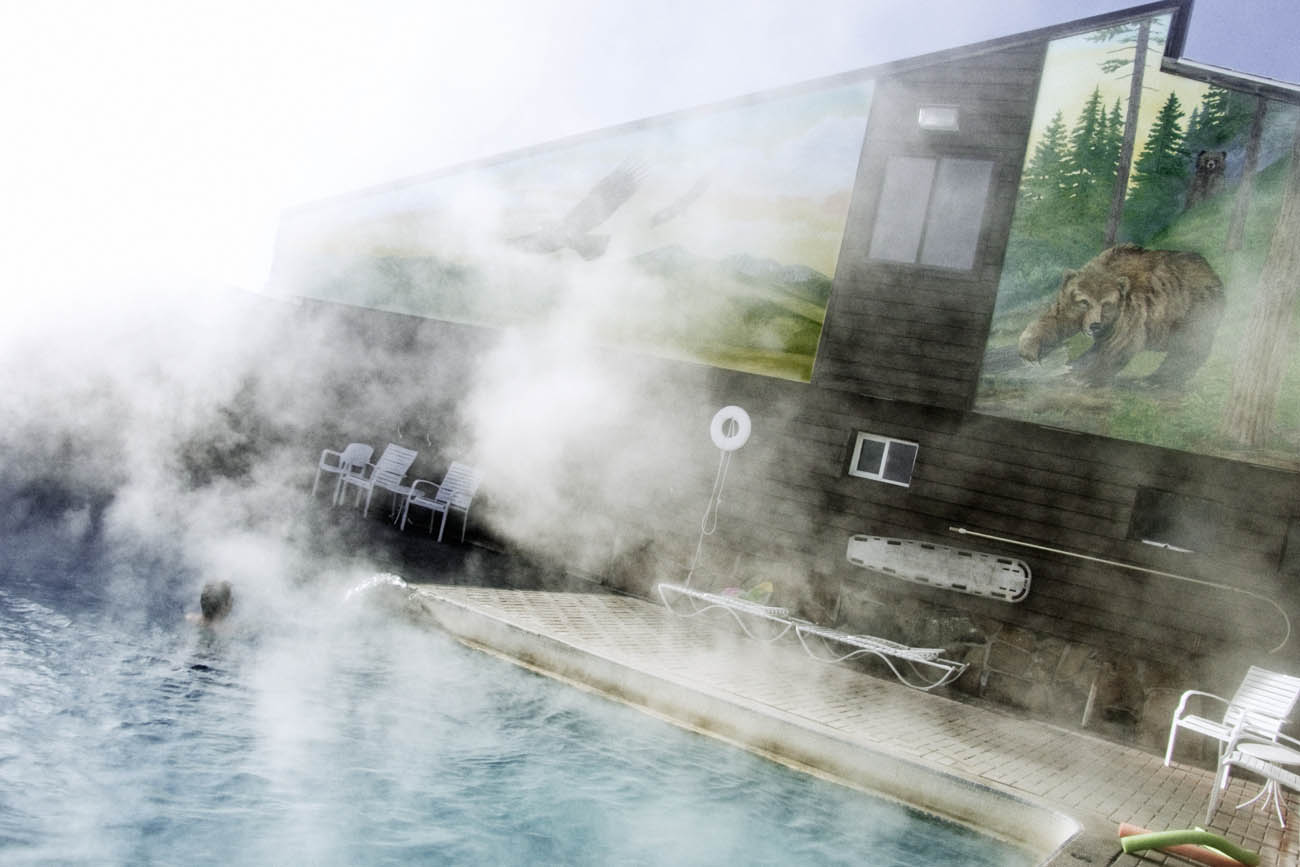Purple Magazine
— S/S 2011 issue 15
Montana
photography by ALEXIS DAHAN
text by WALTER KIRN
photography by ALEXIS DAHAN
I love MONTANA because it doesn’t love me. It doesn’t love anyone. Like any perfect beauty, it’s indifferent to anything but itself. This frees me to desire it with my entire being, knowing that it can’t be seduced, possessed, or changed. It can only be wanted, purely, without selfishness. Montana lives for itself and its own needs. After living here for over 20 years I’m still an outsider, an alien. I can only stand back and bear witness to the time when it will sweep me up, consume me fully, and move on. A little over 20 years ago I moved from New York City to Montana, to write about a zealous religious cult that believed the world was going to end. The cult members thought the mountains would keep them safe from the violence of World War III. They thought that the bombs and missiles would fall elsewhere, that once the fighting was over they would emerge as the unchallenged rulers of the wasteland, to raise a new kingdom all their own. They sold their houses, cars, and furniture, and moved into bunkers built deep underground, hiding in them like hibernating beasts. They waited to feel the earth shake from the explosions. They waited to smell the smoke from distant fires. Eventually they got tired of waiting and climbed up out of their holes to peer around. Nothing had changed. But everything had changed. Things that appeared ordinary before — trains, hills, roads, clouds, buildings — suddenly seemed domineering and heroic. The objects of a world the cult members half expected would be obliterated were seemingly charged with a mystical Platonic presence. All that had been destroyed by the whole episode was their arrogance. They assumed their dream of disaster would come true and that they would gain power. But the world is a dream, and it turned out to be a much stronger dream than any they had dreamt. We all submit to it or go insane.
Over the decades Montana has attracted many artists. Just in my small home town of Livingston alone live the actors Peter Fonda, Michael Keaton, and Jeff Bridges; the novelists Thomas McGuane and Jim Harrison; and the ghost of the film director Sam Peckinpah, who lived for a few years in a hotel room — into the ceiling of which he
I love MONTANA because it doesn’t love me. It doesn’t love anyone. Like any perfect beauty, it’s indifferent to anything but itself. This frees me to desire it with my entire being, knowing that it can’t be seduced, possessed, or changed. It can only be wanted, purely, without selfishness. Montana lives for itself and its own needs. After living here for over 20 years I’m still an outsider, an alien. I can only stand back and bear witness to the time when it will sweep me up, consume me fully, and move on.
A little over 20 years ago I moved from New York City to Montana, to write about a zealous religious cult that believed the world was going to end. The cult members thought the mountains would keep them safe from the violence of World War III. They thought that the bombs and missiles would fall elsewhere, that once the fighting was over they would emerge as the unchallenged rulers of the wasteland, to raise a new kingdom all their own. They sold their houses, cars, and furniture, and moved into bunkers built deep underground, hiding in them like hibernating beasts. They waited to feel the earth shake from the explosions. They waited to smell the smoke from distant fires. Eventually they got tired of waiting and climbed up out of their holes to peer around. Nothing had changed. But everything had changed. Things that appeared ordinary before — trains, hills, roads, clouds, buildings — suddenly seemed domineering and heroic. The objects of a world the cult members half expected would be obliterated were seemingly charged with a mystical Platonic presence. All that had been destroyed by the whole episode was their arrogance. They assumed their dream of disaster would come true and that they would gain power. But the world is a dream, and it turned out to be a much stronger dream than any they had dreamt. We all submit to it or go insane.
Over the decades Montana has attracted many artists. Just in my small home town of Livingston alone live the actors Peter Fonda, Michael Keaton, and Jeff Bridges; the novelists Thomas McGuane and Jim Harrison; and the ghost of the film director Sam Peckinpah, who lived for a few years in a hotel room — into the ceiling of which he
sometimes fired bullets, when he grew paranoid from snorting cocaine. Perhaps one reason why so many artists live in Montana is that it creates dreams that are more powerful than other places, because it has more powerful elements to create these dreams with. There are man-eating bears that can chase you down a mountain, grab hold of your leg, and consume you in an hour; buffalo that wander onto school grounds and graze on the grass of the football and soccer fields; pools of hot water trapped deep inside the earth that under pressure erupt through fissures in the surface and shoot towers of steam into the sky. Then there’s the sky itself, which gives Montana its nickname, Big Sky Country. But the sky is more than just big. The immeasurable dome of the Montana sky so overwhelms the ground, both as a commanding visual spectacle and as an omnipotent metaphysical category, that everything people do beneath it — work, have sex, engage in conversations, make plans, hatch schemes, adorn their bodies — feels comic, feeble, and transient in comparison. The Montana sky sees everything — and has seen everything disappear. It is a burial ground for human dreams, one large enough to absorb a billion more.
In Montana the individual at first feels strong because there are so few competing egos. Deep inside, we all know that we’ll be defeated. Antagonists are mythical here. Start with the weather, which isn’t normal weather, but one consisting of fluctuations of heat and cold, with alternating dry and wet seasons. Montana weather fails to keep a rhythm, delivering absurd volatility instead. On a clear day in an early winter of normal temperatures a wind will suddenly blast up from the south to tip cars and trucks over cliffs and into ditches and push train locomotives off their tracks. Day after day the wind intensifies, until every man-made structure in town loses parts, which blow down the street or sail off into the river. Then, in an instant, without warning, the wind dies down, and people emerge from wherever they took shelter to repair the damage. But by then the snow has begun to fall, gently and evenly at first, then in a crushing onslaught that blocks streets, buries houses, and reaches up over the doors and first-floor windows of other buildings. Freezing arctic air descends to turn the snow to rock. People stab at it with shovels, trying to clear walking paths, but they can’t penetrate the frozen mass. Then, abruptly, the clouds vanish and the sun bombs the earth with unexpected heat, turning the snow into ponds and puddles and streams that people wade through, trying to reach their cars — but by then the sun starts to go down and in a matter of minutes the water turns to ice and everything is stuck again.
Our animal life has the same anarchic spirit. Creatures refuse to stay in the forests, out of sight, and insist on going wherever they please, forcing people to move out of the way. Every few days a colossal bull moose strides through Livingston city park, where children gather to
swing and ride the merry-go-round. The children run away and stay home until he’s gone. Not far away, in a stream beside the park, a family of beavers build bridges and dams that occasionally flood the playground. A family of packrats have lived in the attic of my building for years. They sneak out every night and return with trash and dried apples to stash away. Their debris fills the spaces inside the walls and at night I hear them chewing. I once bought my children a pair of kittens for Christmas. We took them outside to the yard of the small ranch where I used to live. We had just released them when a dark blurry mass came plunging out of the sky, spread its great talons, and whisked the kittens away. It was a great horned owl with yellow eyes. It lived in a hole in a towering nearby tree. We heard the kittens wailing inside the hole, but only for a minute.
To challenge the crazy weather and the cruel wildlife people assert their power with great machines. Trains are everywhere, blowing whistles late into the night, grinding mammoth steel wheels, hissing air brakes when they slow down. The locomotives seem like vast clanking organisms with purposes all their own. Their drivers sit unseen behind small windows. Railroad cars are piled with commodities and equipment, including, these days, Jeeps, amphibious fighting vehicles, and the wings and fuselages of Air Force jets. Seeing these killer contraptions pass by the snowy blue mountains, you remember there’s a war going on out there, a serious one. The trains proceed at even speeds, without rushing. Fathers carry their kids on shoulders to watch the ominous parade of manufactured objects.
We live so far from the world’s disasters and conflicts — and from the powers who plan and fight them — that it’s easy for Montanans to think that we have no role in global politics. It’s a blissfully irresponsible feeling. What I like to do when the TV or the Internet tells me about troublesome events, such as a financial panic or a deadly terrorist strike, is to climb into my car and head north through a dry valley where vultures and eagles swoop down from the sky to peck the eyes of dead deer. At the far end of the valley is White Sulphur Springs, a town built around a concrete pool which is filled from a hot sulfur spring. The water has healing properties against a range of ailments, and bathing in it prolongs life. The steam from the pool affords a natural privacy. At one end a couple can have sex, standing on their tiptoes. At the other end a group of three-year-olds can toss around a red inflatable ball.
Montana is reputedly conservative, moralistic, and full of bigots. That’s not true. It’s the most tolerant place I’ve ever lived. There are only two social commandments: one, keep your distance and stay out of other people’s business; and, two, if someone needs you to help them, do it and don’t ask questions.


















































































































































